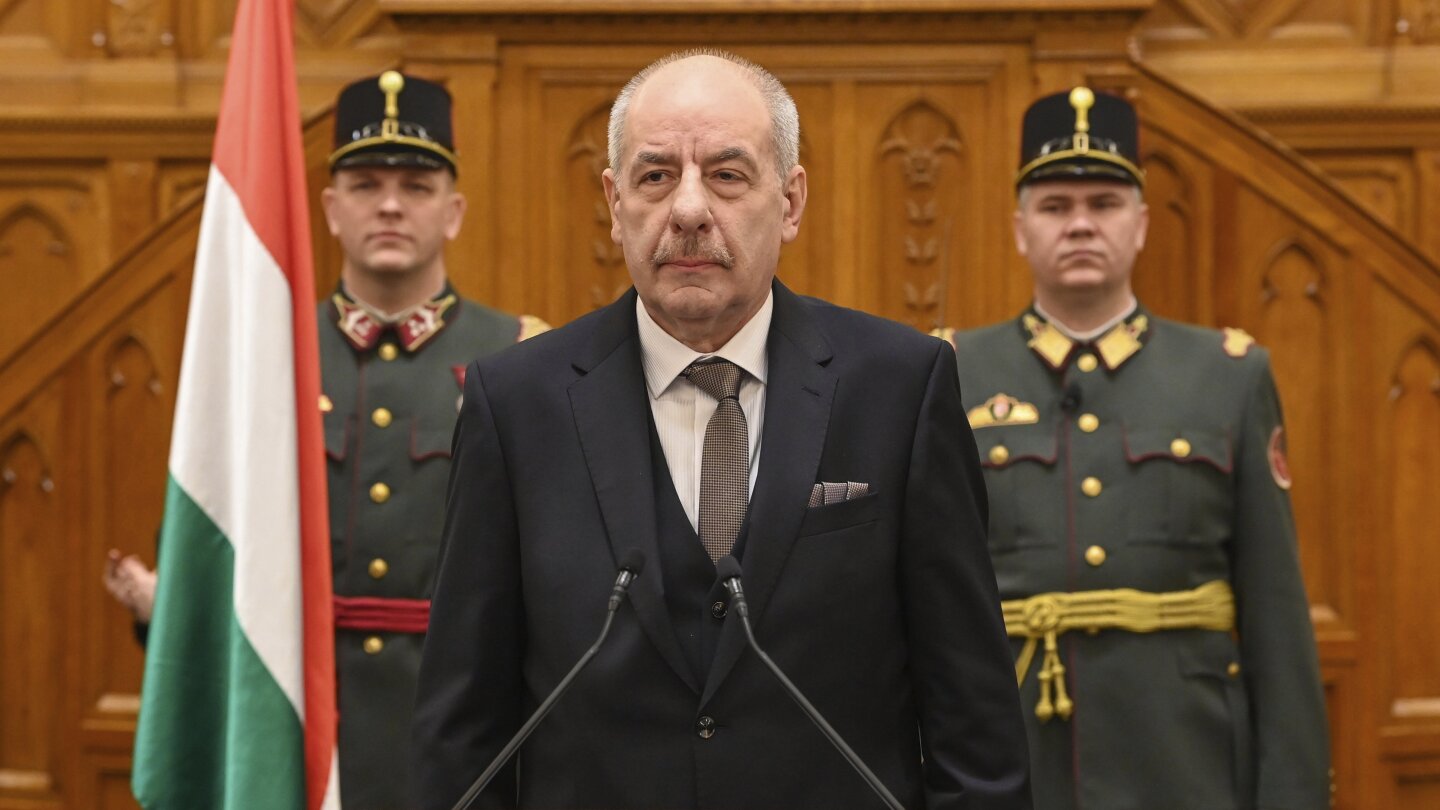BUDAPEST, Hungary (AP) — Hungary’s parliament on Monday elected a new president after its previous head of state resigned in a scandal over a pardon she granted to an accomplice in a child sexual abuse case.
Lawmakers in a secret vote approved the appointment to the presidency of Tamás Sulyok, 67, a lawyer who previously served as the head of Hungary’s Constitutional Court.
Several opposition parties did not participate in the vote, and called for direct presidential elections instead of appointments by vote in parliament. They argued that the new president would be a “party soldier” of Hungarian Prime Minister Viktor Orbán.
Sulyok received 134 votes in favor of his presidency while five lawmakers voted against.
In a speech following his appointment, Sulyok presented himself as a follower of the letter of the law who would seek to refrain from engaging in Hungary’s political life.
The role of president in Hungary is largely ceremonial, though they do have the power to send bills back to lawmakers or to the Constitutional Court for review.
In his speech, Sulyok referenced procedures currently ongoing against Hungary in which the European Union has frozen billions in funding over rule-of-law and democracy concerns.
“We can see how the correctly defined concept of the rule of law is being lost, transformed from an ideal into an idol in today’s Europe as part of a purely utilitarian political approach,” he said.
He also spoke about his belief that member states of the European Union retain their legal national sovereignty despite their membership in the bloc.
Sulyok is expected to formally assume the role on March 5.
The election of a new head of state came after Hungary’s conservative president resigned on Feb. 10 amid public outcry over a pardon she granted to a man convicted of helping to cover up child sexual abuse in a state-run orphanage. That decision unleashed an unprecedented political scandal for Orbán’s long-serving government.
Before the vote on Monday, opposition lawmaker Bence Tordai requested that members of parliament rise to observe a moment of silence for the recent death of Russian opposition activist Alexei Navalny in a Siberian prison.
While most members of the opposition rose from their seats, members of Orbán’s Fidesz party, which has among the closest relations with Russia in the EU, remained seated.
In later remarks in parliament, Orbán criticized Navalny for comments he made during Russia’s 2008 invasion of Georgia that were criticized for their nationalist tone.
“I thank the ruling party caucus for keeping their nerve in the Navalny case. Chauvinists do not deserve respect in the Hungarian parliament,” Orbán said. “But anyway, may he rest in peace.”

